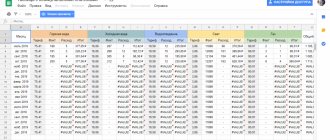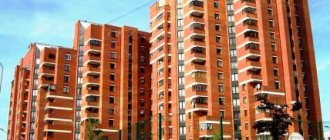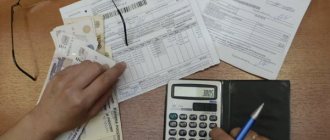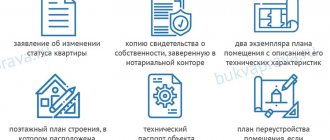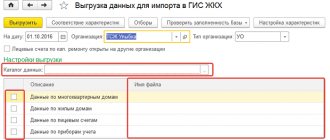MIP online legal encyclopedia - » Housing law » Utilities » Obligation to pay for residential premises and utilities class=»aligncenter» width=»583″ height=»344″[/img] Get an expert’s opinion on paying for residential premises and utilities in two clicks
Payment for utility services includes a strictly limited list of items.
The Housing Code of the Russian Federation provides for the obligation to pay for residential premises and spent utilities, which falls on the shoulders of the population. It does not matter on what right the citizen uses housing: whether it is a commercial or social tenancy, a lease agreement or an agreement on ownership. It must be remembered that on the part of the owner, payments for residential premises and utilities must be paid within a strictly defined period, which is established by the Laws of the Russian Federation.
Obligation to pay on time
So, if we turn to the current regulatory legal acts in the field of housing legislation, then payment for residential premises is formed for the following categories of citizens:
- an employer who has entered into a social lease agreement with a government agency for municipal housing;
- a tenant of an apartment intended for living, which is listed as part of the state or municipal fund;
- a member of a housing cooperative who has joined this organization;
- from the owner of the house, at the time of ownership, etc.
This list of citizens who are obligated to pay for utilities and housing is enshrined in Art. 153 Housing Code of the Russian Federation.
Well, now it is necessary to dwell on each of the categories of the population in more detail. So, if we talk about such a cohort as employers who have entered into rental agreements with municipal or state authorities, then payments for residential premises and utilities are divided into the following items, which are established by the legislative order:
- maintenance of housing (to put it simply - renting an apartment).
- Maintenance and ongoing repairs of housing. In addition, citizens who have entered into a lease are charged the amount of payment for residential premises and common property located on the territory of a multi-apartment building. Major repairs are sponsored from the personal funds of the owner of municipal housing, which is the subject of an agreement implying rental by the needy sections of citizens.
- Payment for utilities that were consumed during the operation of a residential building from the municipal fund for which the lease was concluded.
If we talk about the owner of residential premises in multi-apartment buildings, then the payment for residential premises and utilities includes the following expense items:
- Maintenance and repair of apartments, as well as common property on the territory of an apartment building. However, unlike citizens who rented housing from the municipal fund, this category of the population is subject to payments for both capital and current repairs. At the same time, financial accruals are carried out within the framework of the legislative order in the housing sector.
- Utility fees. At the same time, the amount of payment for utility services for this category of the population is formed in accordance with the readings of personal metering devices.
If we refer to Art. 154 of the Housing Code of the Russian Federation, then we can come to the conclusion that the owner of the residential premises bears the entire burden of expenses for repairs and maintenance of real estate, which is stipulated in contracts with officials carrying out this or that type of activity.
But at the same time, the legislative procedure does not provide for the extension of this legal norm to categories of the population who have registered for commercial rental of housing from the municipal fund. This is due to the fact that in these situations the civil legislation of the Russian Federation comes into force, namely, Art. 421.
Who will feed the new agent?
Let us recall the essence of the reform. Housing and communal services will be collected into a single payment document - EPD. This will help Russians evaluate their expenses, the authorities will help control the growth of tariffs, and the management company will get rid of unfair settlements with service providers. The purpose of the innovation is to reduce citizens’ debts for housing and communal services, which continue to grow, especially in some regions.
As part of the innovation discussed in the Cabinet of Ministers, settlement centers should appear - structures whose responsibility will be to centrally issue EPD in the regions. One of the authors of the initiative, first deputy chairman of the committee on housing policy and housing and communal services Sergei Pakhomov, told Izvestia that it is planned to establish “transparent and strict operating rules” for payment centers, and the legal status of such centers will also be specified.
Meanwhile, some experts believe that the emergence of unified payment centers does not bode well for consumers: it limits the choice of suppliers and management companies, which can lead to an increase in tariffs. In addition, someone will have to maintain payment centers.
This idea is not new. Even under President Medvedev, the State Council decided to create unified settlement centers. But this decision was never implemented, since there is only one question: how will these new structures be supported? Taking into account the latest Decree of the Government of the Russian Federation 1164 dated September 05, 2019, consumers will be required to pay for all services of banks and payment agents (and the cash settlement center is most often the payment agent) separately, in addition to existing payments .
Igor Kokin
expert at the center for federal, regional and network projects at the Institute of Management and Regional Development
The debts of Russians for housing and communal services are really growing. In the first quarter of 2021, the amount of debt reached 564.5 billion rubles, which is 5.4% more than in the same period of 2018, Izvestia writes with reference to the Ministry of Construction. The number of willful defaulters who were sued increased by 16%. Experts, however, believe that the issue is not the sloppiness of citizens, but the low incomes of the population.
Sergey Bulkin/News.ru
Will people be better off if they have to pay another paying agent out of their own pocket?
Structure of fees for residential premises and utilities
Payment for housing and utilities has a certain structure, which is established by law. If we talk about the amount of payment for utilities purchased by any category of the population, then it is formed taking into account consumption:
- cold and hot water;
- Wastewater;
- electricity;
- gas, including if the owner or citizen who entered into the lease purchased natural gas cylinders for himself;
- fuel for heating (including if the heating of the home of the owner or another category of the population is carried out using solid fuel, which they purchase for themselves through the use of the services of specialized companies);
- removal of solid waste generated as part of the population's life activities.
Thus, payments for utility services include a strictly limited list of items, the establishment of which occurs in compliance with the legislative order for all categories of the population without exception. Regardless of whether it will be a citizen who has entered into a lease of premises from the social fund, or a person acting as the owner of the apartment.
Who is required to pay for housing and utilities?
Payment for housing and utilities is an obligation that falls on all layers of citizens living in the Russian Federation without exception. However, the legislative procedure does not establish any exceptions to the general rule. Housing and utility bills for services for the maintenance and repair of structures must be paid within the period established by law.
In particular, payments for housing and utilities must be paid no later than the 10th day of each month that follows the billing period (that is, the previous month).
At the same time, the legislator does not distinguish whether payments for utility services will be made from citizens who have leased premises from the social fund in compliance with the procedure, or on behalf of the owner. If the obligation is not fulfilled by the citizens who rented the apartment, that is, a violation of the rules is recorded, or by the owner of the property, then certain sanctions may be applied by the state, for example, forced collection of debt or a fine in the form of penalties.
Payment of expenses for the maintenance of residential premises and utilities before moving into the residential premises
An interesting question is also about who bears the burden of the costs of maintaining and repairing housing (whether it is commercial rental or social rental, it does not matter) before the actual occupancy of the apartment. If we turn to the housing legislation of the Russian Federation, then the amount of payment for the use of residential premises and utilities until citizens move into the living space is borne by the direct owner of the real estate.
Thus, we can conclude that the obligation to pay the maximum amount of payment for the use of residential premises rests with:
- municipality, if any of the citizens applied for rental housing within the framework of the legislative order from a social fund calculated at the local level;
- the state, if rental housing comes from the federal housing stock;
- a private owner, if rent or commercial rental is carried out on housing that belongs to a person by right of ownership.
It should be remembered that the legislative procedure establishes that the amount of payment for residential premises includes items both for maintaining the proper condition of the property and for repairing the structure before the subject of legal relations directly moves into the territory of the living space. Violation of this order entails liability on the part of both individuals and legal entities.
Responsible person status
The payer of payments for major repairs and utilities may be:
- owner of the property;
- tenant of the property under a social contract. hiring
If the owner leases the property and the agreement provides for the obligation of the tenant to pay for the use of utilities, then the debt for payments still falls on the owner. The law imposes on him the responsibility to monitor timely payment.
Payments can be transferred to the authorized body as follows:
- if the maintenance of an apartment building is carried out by a management company, then the funds under the agreement are transferred to the management company;
- if residents independently manage the house (HOA), then the funds are transferred to the HOA;
- if the owners refuse to create a specialized company, then the funds are transferred under the contract directly to the service provider;
- if the developer has not yet concluded the necessary agreements, then payments are made directly to the developer;
- before the transfer of the object under a social rental contract, the obligation to pay is assigned to state or municipal bodies;
- the tenant of the premises under a social rental contract pays utilities to the owner of the property;
- The tenant can make payments directly to the service provider company, if there is an appropriate provision in the contract.
Under a social tenancy contract, the tenant is obligated to pay utility bills and payments for the use of residential premises. If a citizen does not fulfill the obligation to deposit funds in a timely manner, then the recipient of payments has the right to calculate a penalty for him. It is necessary to note that the calculation of penalties is carried out also for citizens who partially pay utility bills.
The norms of Part 14, Article 155 of the Housing Code of the Russian Federation apply exclusively to owners who are individuals.
Subsidies for housing and utilities
Despite the fact that the legislator establishes the obligation to pay the maximum amount of payment for utilities and charges for the operation of an apartment (including for maintenance and repairs) for all citizens without exception, it is possible to change the amount of payment for utilities and housing. This is primarily achieved through the provision of government subsidies, which are allocated for the maintenance and repair of real estate and payment of utilities.
What does the definition of government subsidy include? Who is entitled to such accruals? The content of these topics is discussed in more detail in Art. 159 Housing Code of the Russian Federation.
Subsidies can be paid to all categories of citizens of the Russian Federation if a violation is identified that concerns the calculation of payments for utility services. In other words, if the amount of the payment is an amount that exceeds the maximum level of expenses in proportion to the income of the subject, then the person is entitled to compensation from the state.
In particular, the subsidy will be transferred if the amount of payments is more than 22% of the total family budget, since this is a direct violation of the rights and interests of Russian citizens.
Such subsidies represent one of the most effective measures of social protection of citizens. In order for the amount of payment for utility services to be recalculated and subsidies to be transferred, the person must provide all the necessary documents to the authorized body, including an application and a document that confirms the violation of the rights of citizens.
Recalculation of the amount of payment for utility services through the calculation of subsidies is possible only if an official application is received from the affected person. The application must be submitted in a standard form. An application for recalculation of utility fees and provision of subsidies should not contain both factual and legal errors.
An application for recalculation of the amount of fees for utility services and payment of subsidies can be submitted personally by both the interested citizen and the subject of legal relations authorized on his behalf.
The application is sent either to the MFC or to the City Centers, whose competence includes the calculation of subsidies. It may be in writing, whether sent by mail or in person, or electronically. An electronic application for recalculation of utility fees and transfer of subsidies can be downloaded on the public services portal in the public domain. The application is considered within 5 working days from the date of receipt of the document by the competent authority, after which an official response is given if the violation is confirmed.
Forced collection of utility bills
Despite the fact that the legislator has provided a legal mechanism for protecting the rights and interests of citizens if a violation of the calculation of utility bills is detected, regulatory legal acts also regulate the forced collection of financial resources from malicious defaulters.
Forced collection of debt occurs if a violation of payment terms for utility services is recorded for 2-3 months. In this case, collection can be carried out either by a utility company, through the imposition of additional sanctions (disconnection from electricity, water and gas supplies), or in court.
Forced collection through the court occurs if the defaulter has not received funds for 36 months.
If collection is not possible for good reasons, then the court may decide to evict the tenants from the apartment, unless this is prohibited by law.
Thus, we can conclude that it is impossible to avoid liability for non-payment of utilities or payments for the use of housing. If the subject of legal relations does not make payments voluntarily, then collection will be carried out by court decision.
Author of the article
Judicial practice under Article 155 of the RF Housing Code:
Decision of the Supreme Court: Determination N 302-ES15-1968 dated 06/09/2015 Judicial Collegium for Economic Disputes, cassation
Decision of the Supreme Court: Determination N VAS-2632/14 dated March 20, 2014 Supreme Arbitration Court, supervision
Decision of the Supreme Court: Determination N 305-ES15-8047 of September 21, 2015 Judicial Collegium for Economic Disputes, cassation
Decision of the Supreme Court: Determination N 304-КГ15-9505 of July 20, 2015 Judicial Collegium for Economic Disputes, cassation
Decision of the Supreme Court: Determination N 305-ES17-2343 dated July 27, 2017 Judicial Collegium for Economic Disputes, cassation
Decision of the Supreme Court: Determination N 310-ES17-6627 dated 06/08/2017 Judicial Collegium for Economic Disputes, cassation
Decision of the Supreme Court: Determination N 302-ES15-1968 of 09/01/2015 Judicial Collegium for Economic Disputes, cassation
Decision of the Supreme Court: Determination N 303-ES15-7918 dated December 7, 2015 Judicial Collegium for Economic Disputes, cassation
Decision of the Supreme Court: Resolution N 308-AD15-15288 of 04/20/2016 Judicial Collegium for Economic Disputes, Cassation
Decision of the Supreme Court: Determination N 307-ES14-3202 of October 23, 2014 Judicial Collegium for Economic Disputes, cassation
- First
- «
- Last
